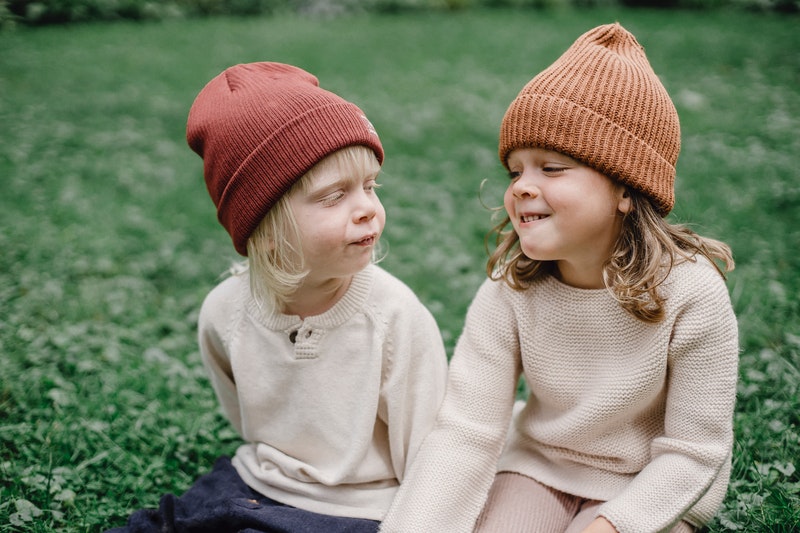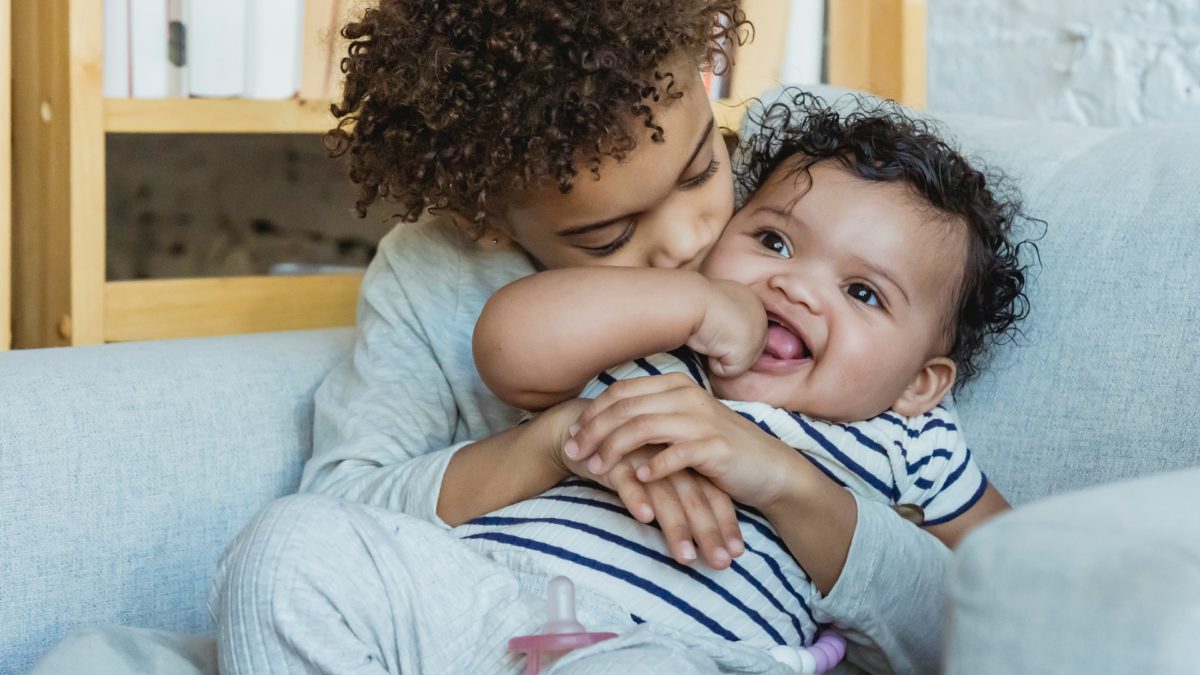Ever wondered why your second child behaves the way they do? Science has an answer.
Back in 2003, Michael Grose, one of Australia’s leading parenting and educational writers and speakers, published the book, Why First-Borns Rule the World and Last-Borns Want to Change it. It would cause ripples not just because it scientifically backed something we’ve all intuitively known—oldest children are bossy, youngest kids will often behave like “babies”—but because it showed how birth order can have a profound impact on a child’s personality, behaviour, learning and future success.
Michael describes first-born children as “responsible, conscientious, rule-keeper[s]”. As for your second child, if they happen to also be your last child, they are a “rebel, change agent, explorer”.
It is important to point out that if you have more than two children, your second child may not quite fit the description above. This is thanks to what Michael calls the “Prince Harry effect”.
What Prince Harry has to do with birth order

The Prince Harry effect is why Michael has released a fully revised and updated version of his book. With families today getting smaller, Michael started noticing a new birth-order phenomenon, where the second-born child is also the youngest child (like Prince Harry). In other words, middle children are fast becoming extinct. It is for this reason Why First-Borns Rule the World and Last-Borns Want to Change it had to be updated. Parents were needing to raise a whole new “species” of children, one that wasn’t quite so popular when the book was first published.
“Few parents describe their second and last child as the baby of the family in the same way that parents of three or more do when discussing their last born,” Michael writes in the revised edition of his book. “Seconds who are also last-borns don’t have two or more older siblings constantly reminding them that they are more capable, so they have less difficulty being taken seriously by others. . . . They don’t grow up with the same self-esteem deficit that many youngest children experience due to being constantly compared to more able siblings, which allows this group to appear more outwardly confident than many last-borns.”
Research has shown that for the best part, first- and second-born children will have vastly different personalities, interests and achievements (once again, cue Prince William and Prince Harry). So if you’re wondering where you’ve gone wrong with your second child when your first one was such an angel, you didn’t. If science was right, you didn’t stand much of a chance.
What this also means is that your first-born can heavily impact your second child’s personality and behaviour. “Seconds as youngest can be a good position depending on their elder sibling,” Michael says, when asked about the common problems unique to second-born who are also last-borns. “If the eldest is a superstar kid or placed on a pedestal, then life can be tough and these seconds will go the way of Prince Harry: Rebel. Many seconds as youngest are agents of change—they have a tendency toward extraversion, charm and risk-taking which makes them potent agents for change.”
How to parent a second child (who is also a last born)
Just when you think you’ve got this parenting thing down pat thanks to your first child and you’ll know what to expect (and change) with your next one, science (and Michael) is here to tell you you actually need a whole new set of strategies when parenting seconds who are also the youngest.
One of the most important things parents should do with their second child is to “help them find their niche”, Michael says. “A second-born who has a younger sibling is essentially a middle child as they have a sibling above and below to negotiate, form relationships with and compete against. Middles frequently think that life is unfair but they are more flexible and blessed with better people skills than their elder sibling.”
So when it comes to parenting a second child, Michael has three tips:
- Let them know they have nothing to prove.
- Foster their natural sense of social justice and encourage them to volunteer or find worthy causes to get behind.
- Resist the urge to hold on to them longer than you should.
And if you’re constantly battling sibling rivalry between your children, resident psychologist Collett Smart has some solutions in the video below
How helpful was this article?
Click on a star to rate it!
0 / 5. 0
Be the first to rate this post!
Melody Tan
Related posts
Subscribe
Receive personalised articles from experts and wellness inspiration weekly!

